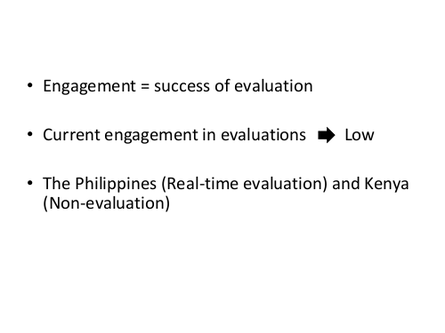
Evaluation frameworks (such as IAHE and ALNAP’s) are necessary and useful tools for guidance on evaluation practice. But programmes are made up of people and engagement with them will determine the success of a humanitarian evaluation. People are products of their culture and their environment, so evaluators must chose carefully the appropriate methodological approach to ensure representative and accurate data is obtained from the affected population. Adapted and flexible ‘person-led’ approaches are required to ensure evaluations engage successfully with affected people, in often unpredictable environments.
This presentation explores some key principals necessary for going beyond the formality of evaluations matrices, inception reports and FGD questionnaires, and getting to the heart of the community experience, by being respectful, opportunistic and recognising the limits of planning. With examples from a range of contexts (such as Angola, Philippines and Kurdistan) it shows how these principals allow for an organic and authentic understanding of the human experience of humanitarian disasters and subsequent programmes, whilst making efficiency gains and ensuring a ‘light’ evaluation footprint.